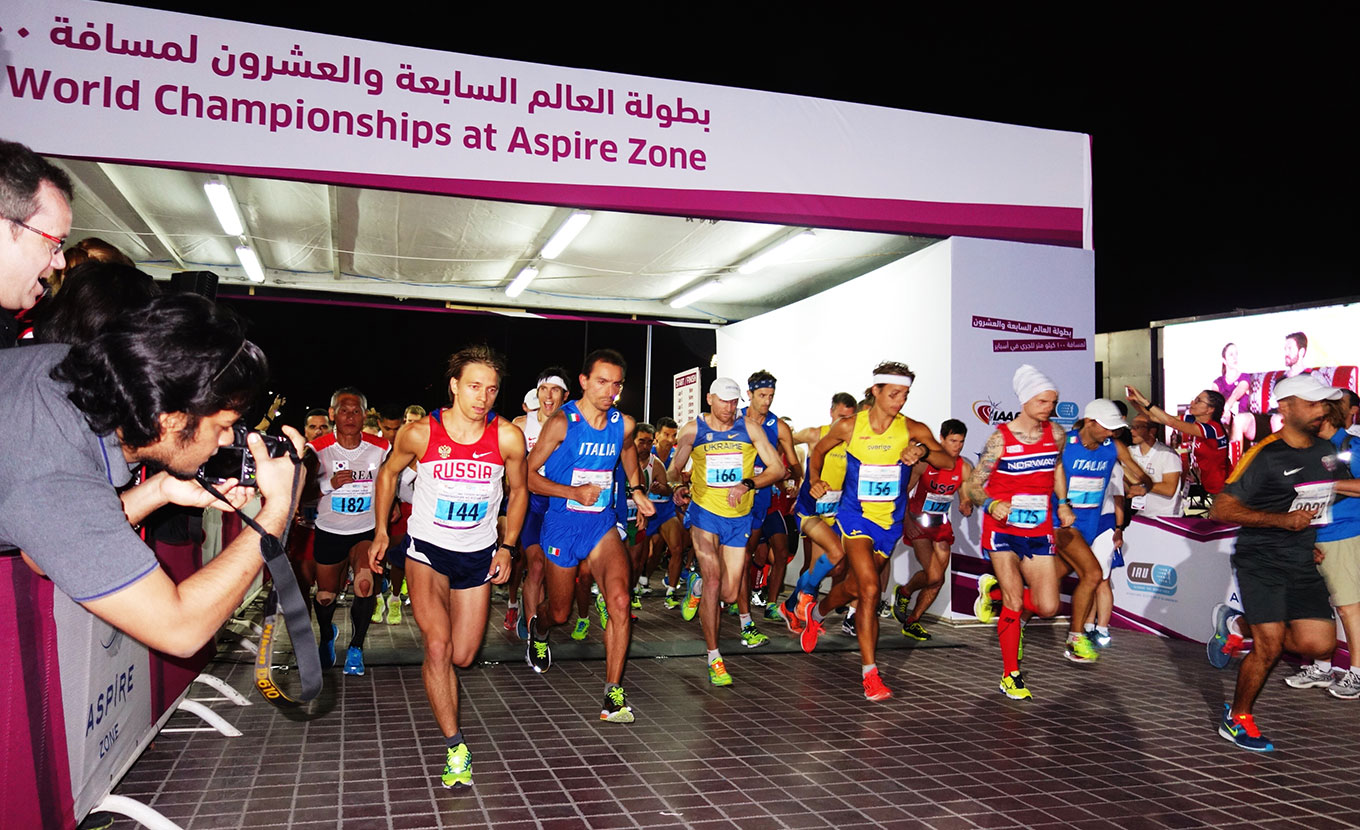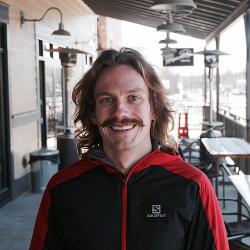On Sunday, November 27, I will race 100 kilometers (62 miles) on foot around the Spanish town of Los Alcázares, located on the Mediterranean coast near Murcia. The race, which will trace a 10-kilometer circuit ten times, is this year’s host of the 100km World Championships. I will run as part of Team USA — six men and six women — competing against about 40 other countries.
This is my third year in a row representing the United States in this championship event (the last two editions were held in Doha, Qatar, and Winschoten, Netherlands), which is organized under the auspices of the International Association of Ultrarunners (IAU). The IAU is under the patronage of the International Association of Athletics Federations (IAAF), the same parent organization of Olympics Track & Field, the World Cross Country Championships, and other global championship running events.
While the IAU hosts several world championship events, including 50km and 24-hour races, the 100km event is the longest standing of these and the IAU’s self-described flagship championship, which began in 1987. The United States has fared well historically at these championships, competing for the team title against other top contenders like Italy, Russia, Japan, France, and Sweden. The team competition is scored by calculating the aggregate time of a country’s top three finishers.
Last year in the Netherlands, I was a bit shy of peak form due to an early-season injury. I managed a respectable time of 7:01:08, or 6:46 per mile, to finish 24th place overall and second among Team USA racers. Our aggregate team time of 21:01:26 earned us fourth place. The US women had an outstanding race that day to take team gold, led by Camille Herron’s individual gold. In 2014, racing in oppressively hot conditions in Qatar, the US men won team gold while my teammate Max King earned individual gold. While I started that race, I unfortunately dropped out at mile 46 due to a toe injury that was rapidly deteriorating as I raced on the tile surface of the Qatari course.

Flaherty, left, runs in the 2015 100km World Championships in Winschoten, Netherlands. | Photo by Guido Gallenkamp
It seems I’ve been somewhat snake-bit with these championships, as I will enter this year’s edition having missed six weeks of training in August and September with a minor injury. Even so, I hope to improve on my time from last year and help Team USA to the podium.
* * *
For those not steeped in the world of ultramarathons — defined as anything longer than a marathon — this all begs the question: Why run so far? For me, a lifelong runner, ultramarathons have long held an allure that is difficult to define. These lengthy races can be extremely varied, ranging from the road race I’m about to run in Spain to a 100-mile circumnavigation of a prominent mountain to a multiday stage race across the desert. Each has its own unique demands in terms of physical fitness, skill on technical terrain, logistical management, and mental fortitude.
Some afford the opportunity to enjoy incredible natural scenery, lush forest ecosystems, and mountain vistas, which I certainly relish. But when racing on the roads, all distractions go by the wayside — there is only you, the clock, and the competition. More than most races, this really tests mental strength. It’s the battle — the resolve and focus required of multiple hours of hard running — that makes it worth it.
Many runners find value in seeing their hard work pay off with measurable results, and I’m no exception. I learned this lesson early, and it has been driven home time and again. But for me, ultramarathons beckon with a promise of something even greater. It is a given that you will be in a lot of pain for several hours, but still you must push on. Every instinct will tell you to give in — if not to stop, then to slow down, even a little bit. If running taught me how to work hard, racing ultramarathons taught me how to persevere.
[Editor’s note: Click here to read about Matt Flaherty’s record-setting run of the Tecumseh Trail Marathon near Bloomington in October]



No Replies to "Local Ultrarunner Competes (Again) in 100km World Championships"